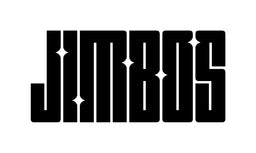Car Wash Soap vs Dish Soap (Why It Matters)
“Soap is soap,” right? Not when it comes to your car. Dish soap is engineered to strip oils and baked-on grease from cookware — great for dishes, terrible for clear coat. Proper car wash soap is pH-balanced, highly lubricated, and formulated to rinse clean without removing wax, sealants, or ceramic protection. In this guide, you’ll learn exactly why dish soap harms finishes, what makes car wash shampoos different, and the safest, pro-approved way to wash your vehicle.
Use Car Wash Soap — Not Dish Soap
For a safe, glossy wash, switch to a pH-balanced formula that adds slick lubrication and rinses streak-free. The Super Soaper is engineered for modern finishes and coatings, delivering ultra-thick foam for semi-touchless washing.
Why Dish Soap Is Bad for Car Paint
Dish detergents use strong degreasing surfactants designed to cut oil quickly, even at high dilutions. That strength is perfect for cookware but harsh for automotive surfaces. Using dish soap to wash your car can:
- Strip wax, sealants, and ceramic toppers — leaving paint unprotected and prone to water spots and oxidation.
- Dry out rubber and plastics — causing trim to fade faster and seals to squeak or crack over time.
- Increase swirl marks — low lubrication means dirt drags across clear coat instead of gliding into the suds.
- Leave residue — some household formulas are harder to rinse completely, creating film and streaks.
Bottom line: dish soap is a heavy degreaser. On paint, that’s the opposite of what you want for routine maintenance.
What Makes Car Wash Soap Different (and Safer)
Modern wash shampoos are built around four pillars:
- Balanced pH: Gentle on clear coat and coatings; doesn’t strip protection during regular washes.
- High lubricity: Creates a slick film so dirt particles glide off rather than grind in.
- Dense, stable foam: Foam clings to vertical panels, encapsulating grime for safer rinsing.
- Clean rinsing: Rinses without film, spots, or added fillers that mute gloss.
These qualities reduce friction during contact washing and preserve the hydrophobic performance you paid for with wax, sealants, or ceramic coatings.
Chemistry 101: Degreasers vs. Detailers’ Shampoos
Not all surfactants behave the same. Dish formulas use aggressive detergents that break down oils and protectants rapidly. Car shampoos rely on gentler surfactant blends and foam boosters that suspend dirt and rinse away without attacking protection layers.
| Feature | Car Wash Soap | Dish Soap |
|---|---|---|
| pH | Neutral / paint-safe | Often more aggressive |
| Lubrication | High — reduces friction | Low — increases marring risk |
| Effect on Wax/Sealant | Preserves protection | Strips protection quickly |
| Trim & Rubber | Safe when used as directed | Can dry and discolor over time |
| Rinsing | Leaves no film | May leave residue/streaks |
Common Myths (and the Truth)
- “Dish soap makes paint squeaky-clean so wax sticks better.” Truth: It strips everything — including healthy polymers — and dries out trim. Use a dedicated paint prep or strip shampoo before polishing or applying protection.
- “One time won’t hurt.” Truth: Even a single wash can remove your wax and flatten water behavior. You’ll see dullness and quicker water spotting afterward.
- “Dish soap is cheaper.” Truth: A concentrated car shampoo costs pennies per wash and protects your finish. Repairs from swirls, stains, or dried trim cost far more.
The Safe Wash System (Step-by-Step)
- Pre-rinse thoroughly. Remove loose grit from top to bottom.
- Pre-foam with The Super Soaper. Let foam dwell 2–3 minutes to encapsulate grime, then rinse.
- Contact wash with plush microfiber. Use Orange Wash Towels or a soft mitt; flip to a clean side every panel.
- Sheet (flood) rinse. Use a steady stream to pull water off panels.
- Dry immediately. Blot with a Massive Drying Towel and use a blower on crevices.
- Top with protection. Finish with Tough As Shell to boost gloss and water beading.
Working in the sun? See our guide: How to Wash in Direct Sunlight Without Water Spots.
Special Cases: Coatings, Wraps, and Matte Paint
- Ceramic-coated cars: Always use a coating-safe, pH-balanced shampoo. Avoid gloss-adding fillers that can clog coatings. The Super Soaper is coating-safe.
- Vinyl wraps & PPF: Use gentle, lubricant-rich soaps; never harsh degreasers. Rinse well along edges.
- Matte finishes: No waxes or gloss enhancers; stick with pure shampoos and matte-safe toppers.
Already Used Dish Soap? Here’s How to Recover
- Rinse thoroughly, then re-wash with a quality car shampoo.
- Decontaminate if needed (iron remover/clay), then polish if swirls appeared.
- Reapply protection (wax, sealant, or ceramic spray) to restore hydrophobics.
- Condition exterior plastics with a water-based dressing to replenish lost oils.
Eco Note: Safe for Your Car and the Environment
Car shampoos are designed to rinse clean and many are readily biodegradable at use dilutions. They also pair well with rinseless methods to conserve water — a smarter choice than blasting harsh detergents down the driveway.
Top Mistakes to Avoid
- Using dish soap “just this once.” It still strips protection.
- Scrubbing with bath towels or kitchen sponges — they mar clear coat.
- Letting soap dry on hot panels — work in shade or smaller sections.
- Cross-contaminating wheels and paint towels — keep separate stacks.
For more pitfalls, see Car Wash Mistakes That Ruin Your Paint.
FAQ
Is there any time dish soap is okay on a car?
Skip it. If you need to strip old wax before polishing, use a dedicated strip shampoo or an isopropyl alcohol paint prep. Dish soap is unpredictable on automotive materials and can dry out rubber and plastics.
Will one dish-soap wash really remove my wax?
Often, yes — or it will significantly weaken it. You’ll notice flat water behavior and quicker spotting afterward. Reapply a wax, sealant, or ceramic spray immediately.
What should I look for in a car wash soap?
pH-balanced, high-lubricity, coating-safe, and clean-rinsing. Dense foam is helpful for pre-soaks, but slickness and residue-free rinsing matter most.
Can I use all-purpose cleaner (APC) instead?
Not for routine washing. APCs are stronger and intended for targeted cleaning. Use them sparingly on problem areas and rinse thoroughly.
Related Guides



